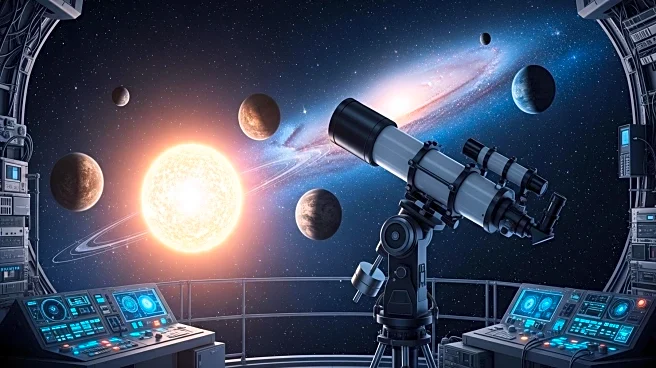What's Happening?
The number of confirmed exoplanets has exceeded 6,000, with astronomers anticipating a surge in discoveries. Upcoming missions, including PLATO, the Roman Space Telescope, and Earth 2.0, are designed to detect Earth-sized, potentially habitable worlds. These missions will employ various methods, such as planetary transits and gravitational microlensing, to identify new exoplanets. The Gaia mission is expected to release a catalog of exoplanets discovered via astrometry, focusing on gas giants. The Roman Space Telescope will scan the Milky Way for microlensing events, providing valuable statistics on Earth-like planets.
Why It's Important?
The continued discovery of exoplanets expands our understanding of the universe and the potential for habitable worlds beyond our solar system. These missions represent significant advancements in technology and methodology, offering new insights into planetary formation and characteristics. The search for Earth-like planets is crucial for understanding the conditions necessary for life and the possibility of finding habitable environments elsewhere in the cosmos.
What's Next?
As new missions launch, astronomers will analyze the data to identify promising candidates for further study. The focus will shift from discovery to characterization, with efforts to study planetary atmospheres and surface conditions. The Habitable Worlds Observatory, planned for the 2040s, aims to directly image potentially habitable worlds, bringing humanity closer to discovering Earth 2.0. These efforts will contribute to our understanding of planetary systems and the potential for life beyond Earth.
Beyond the Headlines
The search for exoplanets raises important questions about the nature of life and the universe. The discovery of Earth-like planets could have profound implications for our understanding of biology and the potential for extraterrestrial life. Additionally, the technological advancements required for these missions highlight the importance of international collaboration and innovation in the pursuit of scientific knowledge.










